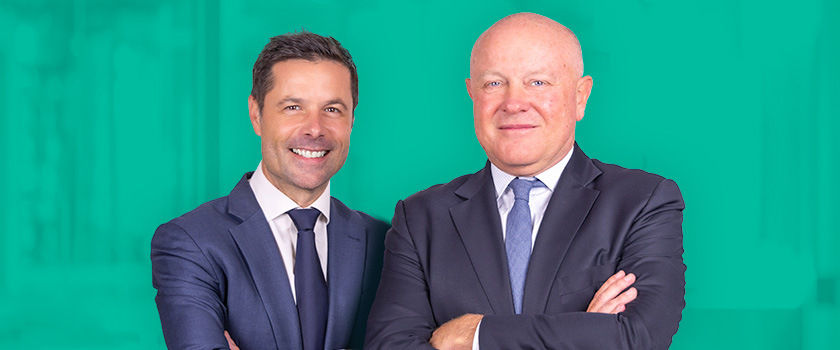Private markets have a history of strong performances following peak equity markets and even during recessions.
Why now? 2023 is a strong year for new vintages
Historic data confirms that private market vintages launched in the year after a trough in public markets have outperformed strongly. In particular, vintages launched during recessions have generated attractive returns as such conditions allow fund managers to acquire assets at depressed valuations and then sell them in the following years when corporate fundamentals are likely to have improved and valuations to have risen.
Private companies with a majority shareholder are more agile and therefore can adapt their strategies quickly to a new environment. Holding companies benefit to a great extent from the operational platform of private market investors. This strategy execution adds value and is not subject to public market reporting and pricing.
Though valuations in private markets tend to correct to a lesser degree than in Public Markets, they are not immune to an increase in interest rates. The recent valuation reset observed in public markets has already and will continue to filter through into the private space, but not evenly across all sectors and strategies. That said, the magnitude of markdowns benefits the current vintages as fund managers can buy at lower entry valuations.
We also see limited risk of any liquidity shortfall as the amount of assets on the sidelines – known as Dry Powder – is plentiful and supports the ongoing deal activity on both the entry and the exit sides.
Where are the opportunities now?
The sheer breadth of private market investments allows investors to select their strategy to opportunistically benefit from any market and economic backdrop. In the current environment of higher inflation, rising interest rates and a potential global recession, we see a specific opportunity to populate investors’ Aspirational Wealth buckets with the following themes:
Business-critical spending – Enterprise Software Private Equity
The deal environment for specialised software companies is likely to remain favourable. Businesses need to improve their productivity and enterprise software remains the key focus to drive automation and process efficiency. The power of enterprise software is mission-critical as it drives revenues and retains customers. The leading next-generation companies are already in the starting blocks.
Alternative Income – Specialised Direct Lending in Private Credit
Direct lending as an asset class has grown significantly since the global financial crisis, largely due to the broad retrenchment by traditional banks. Direct lending sources loans in privately originated transactions, often with embedded yield-enhancing elements. We see specific opportunities in regional direct lending strategies with a defensive profile and sector-focussed strategies in the asset-backed financing of social & affordable housing.
Specialised Real Estate – European Government Real Estate
Real Estate markets are likely to come under pressure due to the higher cost of capital and a looming recession. A reset of market pricing is expected for 2023, but it will not affect all segments of the market equally. We see a strong opportunity to earn premium income in the European Government space, where buildings are often built for purpose, have inflation-linked long lease terms of up to 20 years, lease renewal rates of 85% and high occupancy ratios north of 90%.
Energy Transition – Private Infrastructure
Climate policy is laying the path for material global capital mobilisation to reduce emissions to net zero. Infrastructure sits at the heart of the transition to a low-carbon economy and the urgent requirement for energy resilience. Our focus is explicitly on transition infrastructure in energy & environment, digitalisation, mobility, and decarbonisation. Investors are also drawn to infrastructure for its steady, inflation-mitigating return characteristics and strong downside protection.








